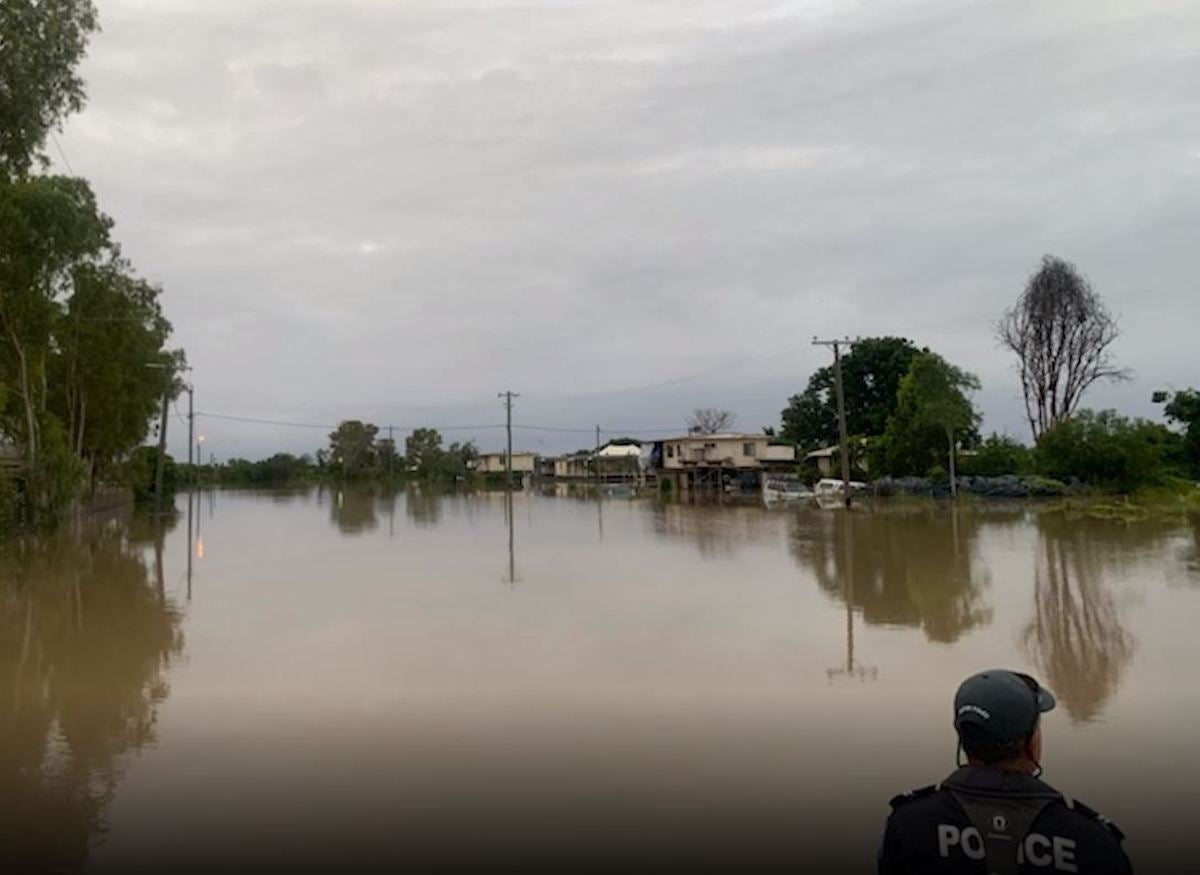Fears over crocodiles swimming into homes as flooding hits Australia
Since 1975, there have been 47 crocodile attacks in Queensland alone, 16 of which were fatal
As flooding in parts of Australia looks set to worsen, local authorities have warned residents to be wary of local wildlife – crocodiles and snakes included - entering their homes.
Queensland is experiencing record-breaking floods as The Gregory River continues to swell, with its peak reaching 12.3 metres. This almost doubled a previous record of 6.78 metres in 2011, with residents in the remote town of Burketown warned to restrict their movements due to crocodile-flooded waters.
Now, Burketown residents – 100 of which have been evacuated to higher ground – have been told that crocodiles and snakes could enter their homes.

A minimum of 37 properties have succumbed to flood waters, with the majority of the 150-strong population evacuated to Doomadgee or Mt Isa, 300km away.
"Due to the current conditions, it is unsafe for displaced people to return to their homes and police remind residents to limit movement in the flood water due to unseen hazards and recent crocodile sightings," local police said.
Likewise, the ranger tasked with the Carpentaria Land Council Aboriginal Corporation, Zachariah Sowden, confirmed fears by citing that crocodiles had already been sighted swimming amidst the flood waters.
“As the flood waters start to enter town from the surrounding river systems the local population of saltwater crocodiles will also move with these flood waters. A few crocodiles have already been sighted in different areas of the community”, Mr Sowden said.
“Please … stay out of the water where possible to limit a chance encounter with a crocodile.”
Queensland Police shared a video of the flood-infested town as community efforts remain ongoing.
Two species of crocodile are commonly found throughout Australia – the freshwater and the saltwater crocodile. The latter is also known as the estuarine crocodile, which, according to the Queensland Department of Environment and Heritage Protection, poses a significantly higher risk to humans than freshwater crocodiles.
At present, Queensland Government is committed to relocating large “problem” crocodiles posing a risk to life from estuaries in a bid to move them away from local communities. Around 50 of these are removed each year, with residents encouraged to report sightings.
Since 1975, there have been 47 crocodile attacks in Queensland alone, 16 of which were fatal.

Meanwhile, Burke Shire mayor Ernie Camp has advised that bull sharks could also be on the loose. According to the University of Florida, these large sharks have been sighted in rivers hundreds of miles from the sea and are typically found in estuaries closer to the shore.
However, bull sharks typically target bony fishes, other sharks, turtles, birds and dolphins, but they can be opportunistic in capturing prey. The International Shark Attack File – which has data dating back to the 1500s - notes that they are responsible for at least 100 unprovoked attacks on humans historically. 27 of these attacks were fatal.
Local residents have also had their universal access to water severed, with water restrictions in place from 7am to 10am and 4pm to 7pm. Likewise, the use of portable toilets and public toilets has been encouraged as the sewage system continues to struggle.
Those remaining in the isolated town could be cut off for up to two weeks as conditions ease.
Join our commenting forum
Join thought-provoking conversations, follow other Independent readers and see their replies
Comments




Bookmark popover
Removed from bookmarks